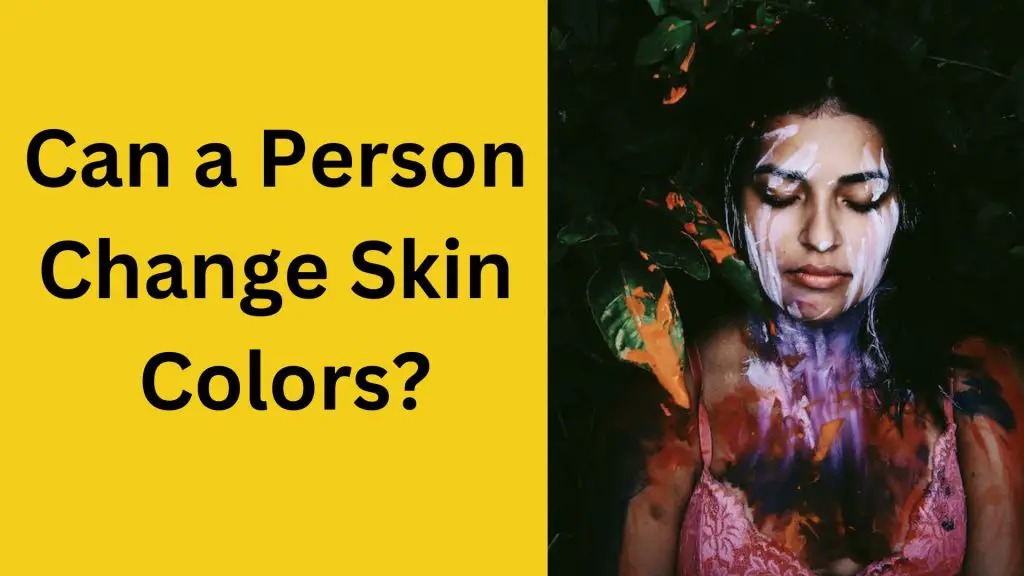Welcome to the fascinating world of hair care, where the expertise of a hair specialist doctor play a pivotal role. In this exploration, we delve into the essential contributions of these specialists in nurturing and maintaining the health and beauty of our crowning glory. Join us on a journey to understand the intricate dynamics of hair care and the invaluable role that hair specialist doctors play in ensuring vibrant and healthy locks.
What is a Hair Doctor Called?
Ever wondered about the title bestowed upon those entrusted with the care of our precious strands? Let’s demystify the nomenclature and delve into the expertise of professionals in the field of hair care. Discover the specific title that identifies these guardians of your tresses.
Which hair specialist Doctor should I Consult for My Hair Concerns?
When it comes to addressing the myriad issues that can affect our hair, knowing which doctor to turn to is key. Join us as we navigate through the diverse medical professionals, each equipped with unique skills to tackle specific hair-related concerns. Whether it’s hair loss, scalp conditions, or other challenges, understanding the right specialist for the job is the first step toward a healthier and more vibrant mane.
Hair specialist Doctor to Consult for Hair related Problems
Curious about what specialists to visit in the field of hair loss treatment? Here’s a breakdown:
Dermatologists
Dermatologists are medical professionals specializing in the treatment of skin, hair, and nails. Proficient in assessing your medical history and conducting thorough scalp examinations, they may utilize scalp biopsies or blood tests for accurate hair loss diagnoses.
Trichologists
Trichologists, specialists in hair and scalp care, operate in the paramedical field without requiring a fully-qualified medical degree. Using specialized lenses, they examine your hair and scalp to identify the root cause of balding and suggest appropriate treatments based on the extent of hair loss.
Endocrinologists
Dedicated to diagnosing and treating disorders related to endocrine glands, endocrinologists focus on hormonal imbalances. These specialists play a crucial role in addressing hair problems associated with hormones like testosterone and estrogen, which can lead to the thinning of hair follicles.
Plastic Surgeon
Plastic surgeons, experts in hair transplant procedures, handle this form of plastic surgery. While dermatologists can also perform this surgery, it involves removing small grafts of hair-bearing scalp from the back of the head and relocating them to areas experiencing thinning.
Understanding the unique expertise of each specialist allows you to make informed decisions about your hair treatment journey.
When Should You Visit a hair Specialist Doctor?
The best time to see a hair specialist is as soon as you notice any of the early signs of hair related disorders. Because some hair related problems are permanent, acting quickly can help you to stop the problem from worsening and keep more of your hair.
How to Choose a hair specialist doctor
Consider the following factors when selecting a hair specialist doctor for hair treatment:
- Professional Experience: Opt for a doctor with a minimum of seven years of expertise in addressing hair loss. A longer track record in treating hair loss enhances the likelihood of a successful outcome for your specific condition.
- Reliability: Given the prevalence of dubious claims and quick-fix solutions in the market, it is essential to determine if your chosen doctor has verifiable success stories from individuals who have benefited from effective and side-effect-free hair loss treatments.
- Empathy and Understanding: Since hair loss often leads to emotional distress, it is advisable to choose a doctor who demonstrates patience, actively listens to your concerns, and offers compassionate care throughout the treatment process.
Common Hair and Scalp Conditions That Need a Hair Specialist Doctor
Most hair and scalp issues are not associated with underlying medical problems or conditions. However, it is important to have a thorough evaluation by a hair specialist Doctor in order to determine what hair and scalp issues you have, and whether or not there may be associated medical issues. Most common hair and scalp conditions include:
- Alopecia areata
- Male pattern baldness
- Female pattern baldness
- Shedding (telogen effluvium)
- Excessive hair growth (hypertrichosis and hirsutism)
- Scalp conditions including dandruff, scaling, inflammation, redness, and bumps
- Hair loss related to autoimmune disorders or other diseases
Lets talk about hair loss
Hair loss is a prevalent and persistent condition that affects men and women. According to Medihair, one of the largest platform that provides statistical information about proven hair loss treatments, Around 85% of men and 33% of women will at some time face hair loss.
Current treatment options are notably constrained, and hair loss tends to recur, with an increasingly younger age of onset on a global scale.
The predominant form of hair loss is presently androgenetic alopecia, and the only commercially available FDA-approved treatments for this condition are minoxidil tincture and finasteride. In cases of heightened hair loss, resorting to hair transplantation becomes necessary to enhance appearance.
Causes of hair loss in both men and women
On average, individuals typically shed 50 to 100 hairs daily, a process usually imperceptible due to concurrent hair growth. Hair loss becomes noticeable when the fallen hair is not adequately replaced by new growth.
Various factors contribute to hair loss, including:
- Family History (Heredity): The primary cause of hair loss is often hereditary, associated with aging. Termed androgenic alopecia, it manifests as male-pattern baldness or female-pattern baldness, progressing gradually and following predictable patterns such as receding hairlines in men and thinning crowns in women.
- Hormonal Changes and Medical Conditions: Hair loss, whether permanent or temporary, can be triggered by hormonal shifts during events like pregnancy, childbirth, menopause, and thyroid disorders. Medical conditions such as immune system-related alopecia areata, scalp infections like ringworm, and the hair-pulling disorder trichotillomania can also lead to hair loss.
- Medications and Supplements: Certain drugs used for cancer, arthritis, depression, heart problems, gout, and high blood pressure may have hair loss as a side effect.
- Radiation Therapy to the Head: Hair may not regrow in the same manner after undergoing head radiation therapy.
- Stressful Events: Physical or emotional shocks often result in general hair thinning a few months after the event, though this type of hair loss is typically temporary.
- Hairstyles and Treatments: Excessive hairstyling or tightly pulled hairstyles like pigtails or cornrows can lead to traction alopecia, a form of hair loss. Additionally, hot-oil hair treatments and permanents have the potential to cause hair loss, which may become permanent if scarring occurs.
Click here to read more about Hair loss causes.
Natural Hair Treatment Tips for Hair Re-growth
Addressing hair loss or thinning hair can pose a difficulty, and the effectiveness of treatments can vary from person to person.
In instances of specific pattern baldness or certain health conditions contributing to hair loss, regrowing hair may not always be feasible. Nevertheless, several natural treatments have been reported by some individuals as effective in promoting hair regrowth. Presented below is a compilation of ten noteworthy natural approaches for stimulating hair regrowth.
Scalp Massage
A 2019 study showed regular scalp massage boosts hair growth, increases blood circulation, and improves scalp health. Daily massage may relieve stress-related hair loss by stimulating dermal papilla cell growth.
Aloe Vera
Aloe vera has a longstanding history of use in addressing hair loss, soothing the scalp, and conditioning hair. It possesses the ability to alleviate dandruff and unblock hair follicles clogged by excess oil. Applying pure aloe vera gel to your scalp and hair a few times a week or using shampoos and conditioners containing aloe vera can be beneficial.
Fish Oil
Consuming omega fatty acids is recognized for promoting internal hair health, as they are rich in nutrients and proteins. An omega supplement, coupled with antioxidants, can enhance hair density and diameter while reducing hair loss.
Onion Juice
Onion juice, despite its smell, promotes hair growth and treats alopecia areata, an autoimmune condition causing hair loss in various areas. To use, blend onions, extract the juice, apply to your scalp for 15 minutes, and shampoo.
Rosemary Oil
Rosemary oil, popular for hair growth and reducing loss, stimulates new growth. Mix with carrier oil, apply, and rinse. Add to diluted shampoo and conditioner.
Lemon
Both fresh lemon juice and lemon oil have been found to enhance hair quality and growth. Lemon oil can contribute to a healthy scalp and encourage hair growth. Apply fresh lemon juice to your scalp and hair 15 minutes before shampooing, or use diluted lemon essential oil in a carrier oil as part of a hair mask.
Conclusion
Hair specialists are vital for vibrant, healthy hair. Their expertise guides diagnosis, treatment, and personalized care. Gain confidence in your hair care by understanding specialists’ roles—from dermatologists to trichologists and endocrinologists. Collaborate with skilled professionals for a healthier hair journey.
Related articles:
Dutasteride Tablets: A Comprehensive Guide to Hair Loss Treatment
The Ultimate Guide to Hair Removal Machine: Achieving Smooth Skin in 2023
Unlock Beauty: Oliva Skin and Hair Clinic Expertise


